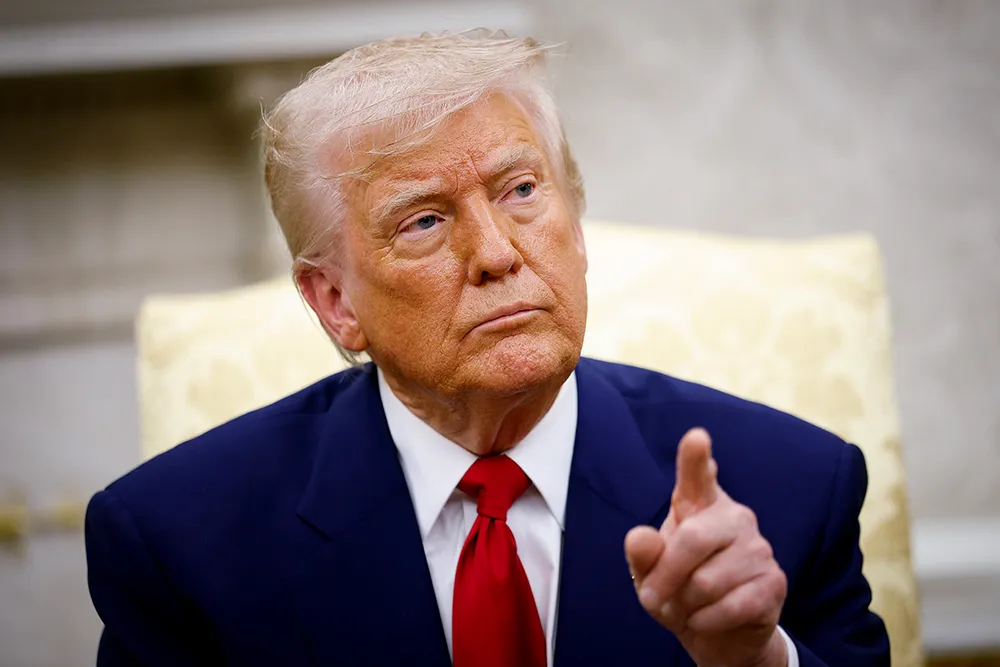Trump’s 100% Movie Tariff Threat Could Devastate the U.K.’s Fragile Film Industry
Trump’s 100% Movie Tariff Threat Could Devastate the U.K.’s Fragile Film Industry
By
David Goldfarb
Last updated:
October 20, 2025
First Published:
November 30, 2025

Photo: Variety
Britain’s film industry, once hailed as a global powerhouse, is now fighting to stay afloat. Between dwindling box office sales, competition from streaming giants, and the lingering effects of Hollywood’s actor strikes, studios from Pinewood to Shepperton are already feeling the squeeze. Now, a new challenge looms — a potential 100% tariff on all movies produced outside the United States, a policy repeatedly floated by U.S. President Donald Trump.
If implemented, this move could send shockwaves across the U.K.’s entertainment economy, cutting deep into the very partnerships that sustain its film and TV production ecosystem.
A Fragile Industry Facing a Global Shakeup
The British film industry has weathered several storms in recent years. While domestic audiences are slowly returning to cinemas, box office sales remain around 25% below pre-pandemic levels, according to industry trackers. Meanwhile, the rapid dominance of streaming platforms such as Netflix, Amazon Prime Video, and Disney+ has shifted both budgets and audience attention away from traditional theatrical releases.
The renewed tariff threat adds another layer of uncertainty. Trump first proposed the idea in May 2025, accusing foreign countries of “stealing America’s movie-making business.” He reiterated the stance in September, pledging to protect domestic production by penalizing imported films — a move critics say would fragment an already globalized industry.
For Britain, the implications are enormous. The country’s creative industries collectively contribute £126 billion ($161 billion) to the economy each year, employing over 2.5 million people, according to the U.K. Department for Culture, Media and Sport. Of that, film and television production alone accounted for £5.6 billion ($7.1 billion) in 2024, a record figure despite the tough environment.
The U.S. Is Britain’s Biggest Backer
From blockbusters like Mission: Impossible and Star Wars to streaming hits filmed on British soil, the majority of big-budget productions in the U.K. are bankrolled by U.S. studios. According to the British Film Institute (BFI), 65% of all U.K. film production spending in 2024 came from American companies and platforms.
That dependency has long been both a strength and a vulnerability. “We rely heavily on U.S. investment,” said film director Howard Berry. “Without it, many of our studios would be sitting empty. We don’t yet have a large enough domestic fund to fully sustain the industry.”
If U.S.-U.K. film trade faces new tariffs, production costs could double overnight, forcing American studios to relocate projects or abandon them entirely. This would not only threaten jobs for thousands of British crew members but also diminish inward investment that supports everything from set construction to catering services.
The Voices Inside the Industry
Gurinder Chadha, director of Bend It Like Beckham and the upcoming Christmas Karma, called it a “miracle” that her latest film was even made. “I’m not sure tariffs are realistic, but the message is clear — every country wants to protect its own film industry,” she said.
Industry veterans echo that sentiment but warn of unintended consequences. “The modern film industry is deeply interconnected,” noted Vue International CEO Tim Richards. “From screenwriting in London to post-production in Los Angeles, filmmaking isn’t confined by borders. Tariffs could disrupt that balance completely.”
California Governor Gavin Newsom recently expanded his state’s film and TV tax credit program to $750 million, aiming to attract productions back to Hollywood. But critics argue that tariffs are a blunt tool — one that could backfire by isolating the U.S. from global collaboration.
Britain’s Next Move
For now, the British government is treading carefully. After Trump’s initial announcement, officials declined to provide detailed commentary, stating only that the U.K.’s film industry remains “world-class.” But behind the scenes, industry leaders are urging Downing Street to make film trade a top priority in any future negotiations with Washington.
“It’s absolutely vital that our prime minister raises this directly with the U.S. government,” said Caroline Dinenage, chair of the U.K. Culture, Media, and Sport Committee. “Film and television don’t just entertain — they sustain thousands of livelihoods and bring billions in investment.”
Some experts believe the crisis could push the U.K. to diversify its partnerships. Zygi Kamasa, CEO of True Brit Entertainment, suggests that co-production deals with European and Asian studios could rise if U.S. collaboration weakens. “British films have always traveled well internationally,” he said. “This could be the moment to strengthen those ties.”
A Defining Moment for Global Cinema
As cameras continue to roll for now, the uncertainty surrounding Trump’s tariff plan is casting a long shadow over the British entertainment sector. For a country that has served as Hollywood’s creative hub for decades, the stakes couldn’t be higher.
The coming months may determine whether Britain can safeguard its film industry from geopolitical turbulence — or whether one of the world’s most celebrated cinematic powerhouses will find itself fading behind the curtain.
Popular articles
Subscribe to unlock premium content
Snow, Silence, and Splendor

The $60 Million Market for Ultra-Exclusive Executive Pop-Up Experiences

Conquering the Poles in Absolute Luxury

Snow, Silence, and Splendor

The $60 Million Market for Ultra-Exclusive Executive Pop-Up Experiences

Snow, Silence, and Splendor









